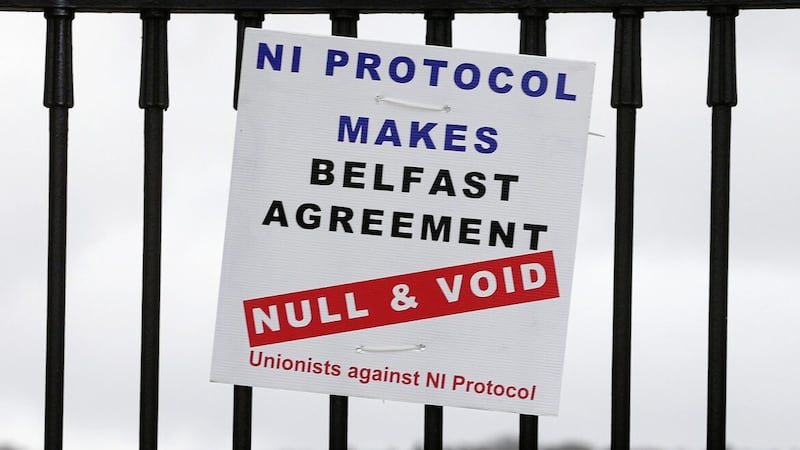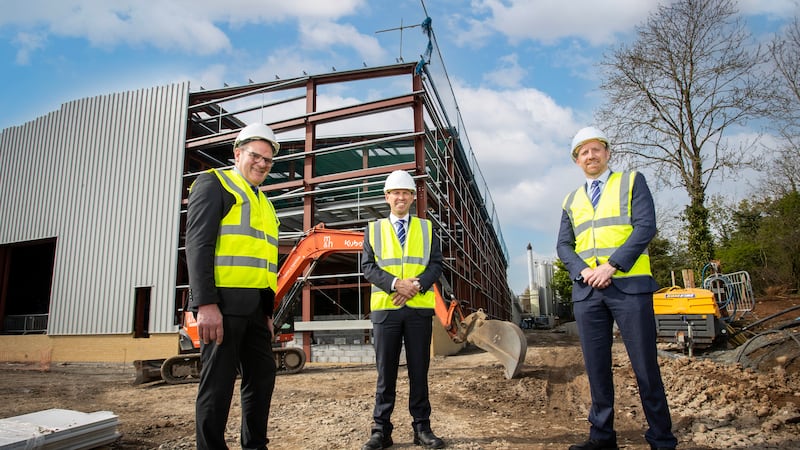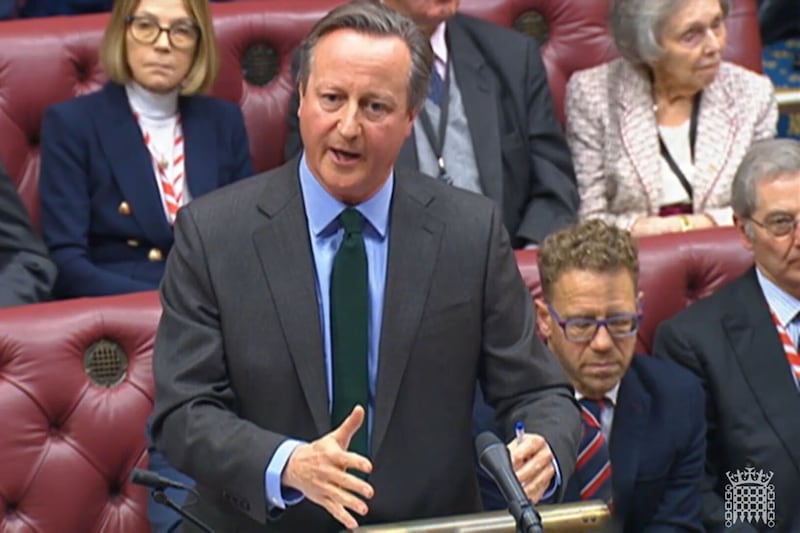RESEARCH that concludes the protocol has contributed to the Northern Ireland having a "comparatively respectable" growth profile has been welcomed.
The National Institute for Economic and Social Research (NIESR) found the north outperformed Scotland and Wales economically, with the post-Brexit trade arrangements giving the region a boost.
The research came as the former senior civil servant who for five years led Stormont's response to Brexit accused the British government of "one-sided analysis" of the Good Friday Agreement.
Dr Andrew McCormick, the former director general of international relations with the Executive Office, said the British government's Northern Ireland Protocol Bill was "internally contradictory".
The controversial legislation that seeks to disapply elements of the protocol, has completed its third reading in the House of Commons without amendments and will now move to House of Lords, where its passage is expected to be much less certain.
The NIESR research said the north had slightly outperformed the UK average since the end of 2019 but that the lift was unlikely to be sustained without more investment.
Its modelling indicates that without the protocol, growth in the region would have initially been lower than in Britain before the rates converged.
"The protocol should be viewed as a temporary boost driven by the trading sector, but to convert this into long term success, policymakers have to focus on increasing productivity," NIESR said.
Sinn Féin's Caoimhe Archibald said the think tank's findings demonstrated that the protocol was working and helping the economy.
“This research again demonstrates that businesses are reaping the benefits of the protocol and the opportunities afforded by unique access to both the EU and British markets," the East Derry MLA said.
“This research makes it clear that the protocol must remain, and that it should be boosted by greater levels of investment."
The SDLP's Sinead McLaughlin said the research underlined the requirement to "retain and further explore the benefits afforded by the protocol".
"At a time when we are seeing businesses closing their doors every day as a result of the current costs crisis we cannot afford to let this opportunity slip through our fingers," she said.
"It’s deeply disappointing that the DUP continue to put their own narrow political ideology above prosperity for people here."
In Dr McCormick's paper published by the Institute of International and European Affairs, the former civil servant said the British government's protocol legislation is "internally contradictory, in that it adopts a one-sided analysis of the Belfast/Good Friday Agreement while arguing that it is needed to uphold that agreement".
He argues that it would "set a dangerous precedent to respond to the refusal of one side to participate in the institutions by providing a concession in their favour, especially one which would run contrary to the views and interests of the majority".
Dr McCormick also said that "any application of Brexit disturbs the delicate balance established following the 1998 agreement".
A British government spokesperson said protecting the Good Friday Agreement was a priority and that the protocol in its current form was "undermining the delicate balance" of the accord.








